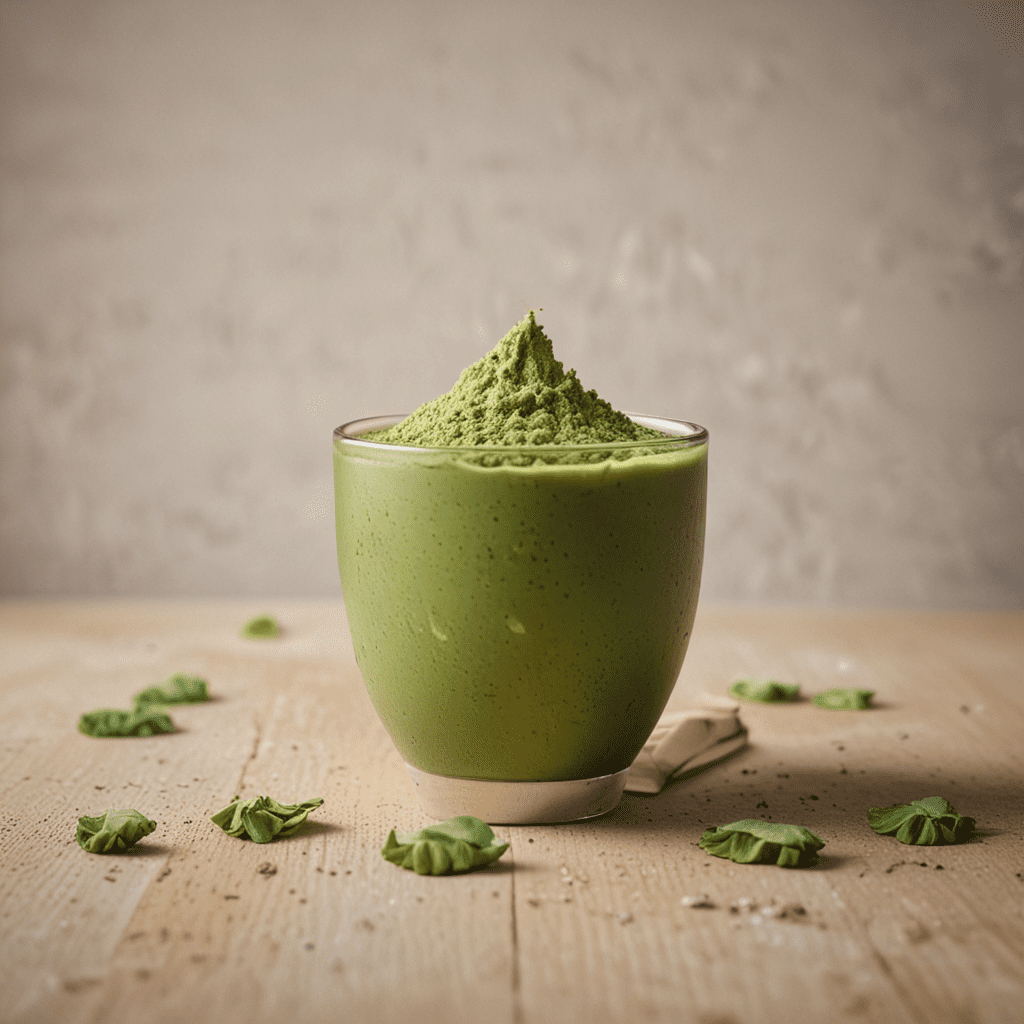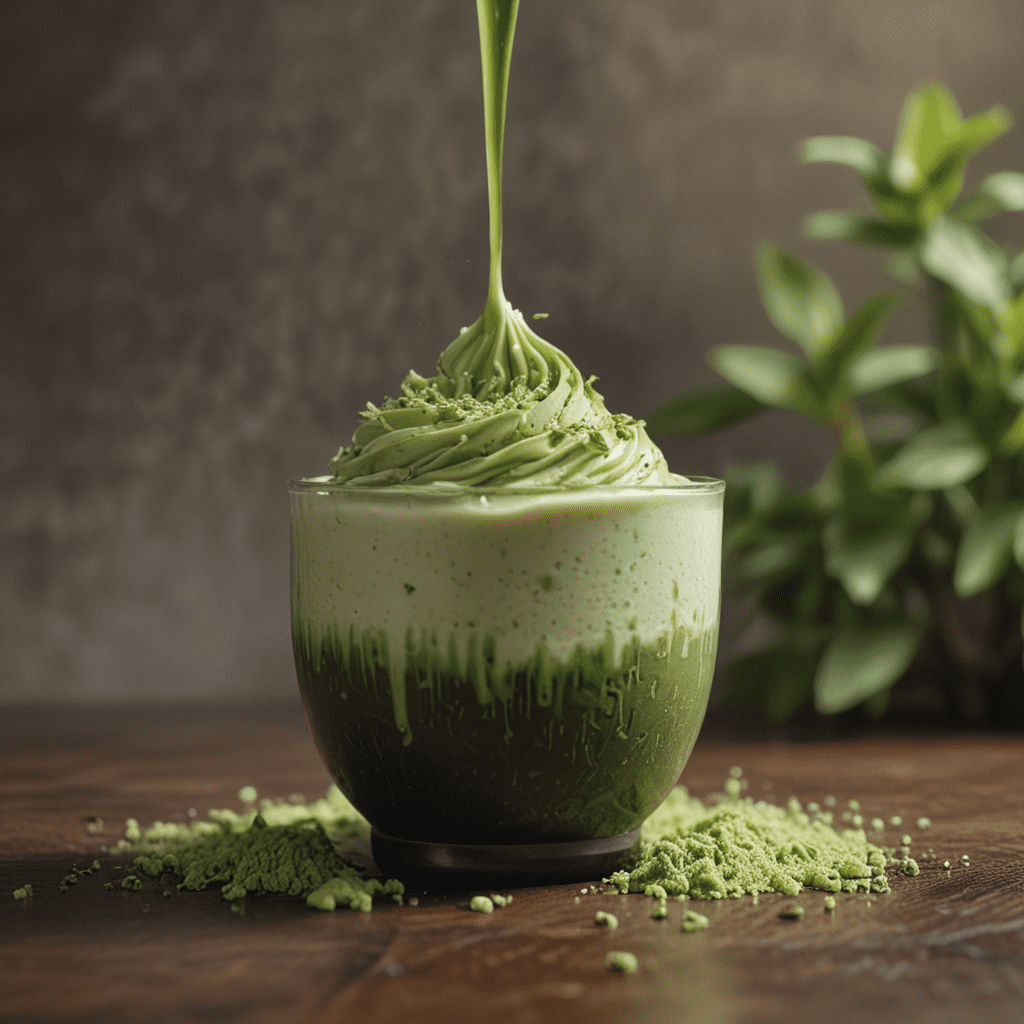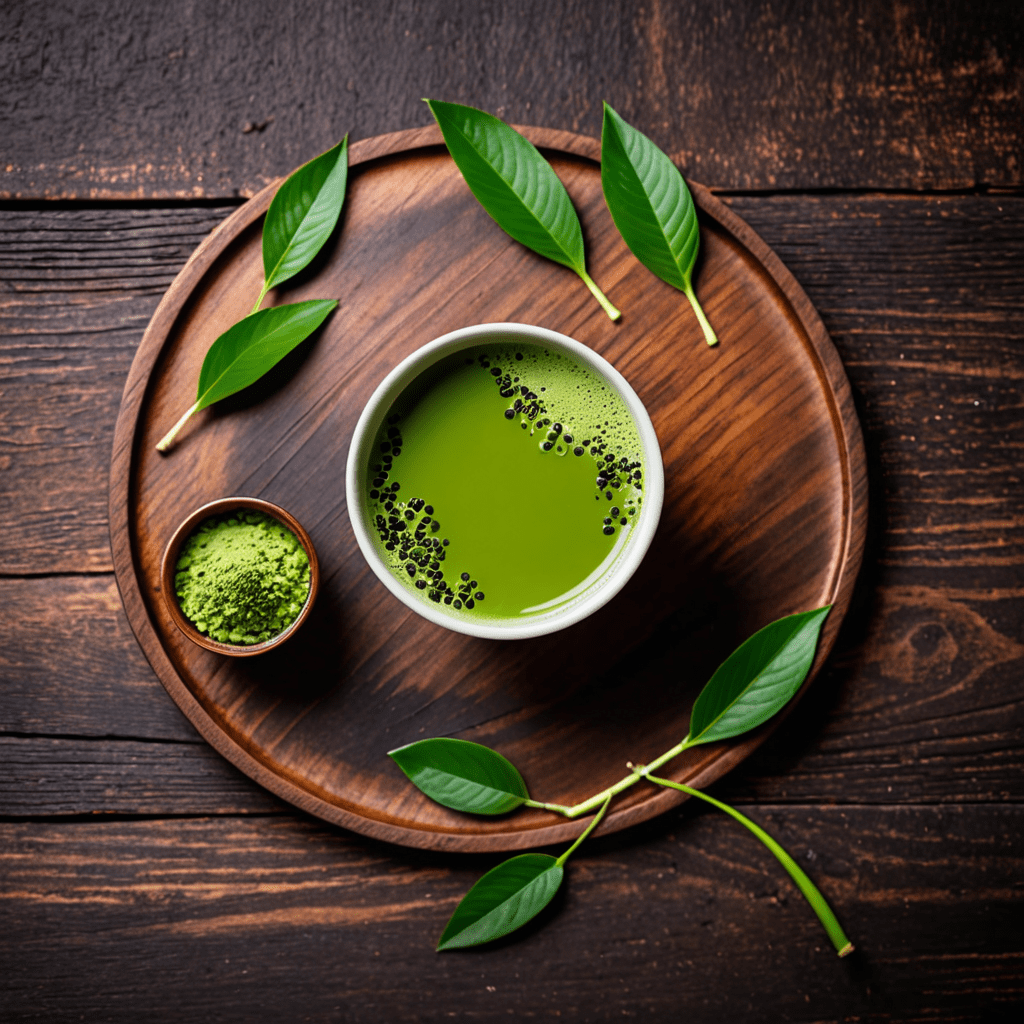What is Matcha Tea?
Matcha tea is a finely ground green tea powder made from the leaves of the Camellia sinensis plant. It is unique among green teas in that the entire leaf is used, rather than just the steeped leaves. This results in a tea that is particularly rich in antioxidants and other beneficial compounds.
Matcha tea has a vibrant green color and a slightly earthy flavor. It is typically whisked with hot water to create a frothy, flavorful beverage. Matcha can also be added to smoothies, lattes, and other drinks or used as an ingredient in baking and cooking.
History of Matcha Tea
Matcha tea originated in China during the Tang Dynasty (618-907 AD). It was originally used by Buddhist monks as a form of meditation. Matcha was brought to Japan by Zen Buddhist monks in the 12th century and quickly became popular among the samurai class.
Matcha tea is an important part of Japanese tea ceremony, which is a ritualized way of preparing and serving tea. It is also used in other Japanese cultural events, such as tea parties and weddings.
Nutritional Profile of Matcha Tea
Matcha tea is a nutrient-rich beverage. It is a good source of antioxidants, including epigallocatechin gallate (EGCG), which has been shown to have numerous health benefits. Matcha also contains chlorophyll, which gives it its green color and has been shown to have detoxifying effects.
In addition to antioxidants, matcha tea also contains caffeine, L-theanine, and other beneficial compounds. These compounds work together to provide a sustained boost of energy without the jitters or crash that is often associated with caffeine.
Benefits of Matcha Tea
Matcha tea has been shown to have a number of health benefits, including:
- Improved cognitive function
- Increased energy levels
- Reduced stress and anxiety
- Boosted metabolism
- Lowered cholesterol levels
- Reduced risk of cancer
- Improved skin health
5. Matcha Tea as a Natural Energy Booster
Matcha tea is an excellent natural energy booster. It contains caffeine, which is a stimulant that can help to improve alertness and focus. However, matcha tea also contains L-theanine, an amino acid that has been shown to have calming effects. This combination of caffeine and L-theanine provides a sustained boost of energy without the jitters or crash that is often associated with caffeine.
6. How to Prepare Matcha Tea
Matcha tea is typically prepared by whisking it with hot water. To make a cup of matcha tea, you will need:
- 1/2 teaspoon matcha tea powder
- 1/2 cup hot water (175-185 degrees Fahrenheit)
- A matcha whisk or a small spoon
Instructions:
- Place the matcha tea powder in a tea bowl or cup.
- Add the hot water and whisk vigorously until the tea is frothy and there are no lumps.
- Enjoy your matcha tea!
7. Matcha Tea Recipes
Matcha tea can be enjoyed on its own or added to other drinks and recipes. Here are a few ideas:
- Matcha latte: Add matcha tea powder to your favorite latte recipe.
- Matcha smoothie: Add matcha tea powder to your favorite smoothie recipe.
- Matcha cookies: Add matcha tea powder to your favorite cookie recipe.
- Matcha cake: Add matcha tea powder to your favorite cake recipe.
8. Matcha Tea Safety and Dosage
Matcha tea is generally safe to consume. However, it is important to note that matcha tea contains caffeine. If you are sensitive to caffeine, you may want to limit your intake of matcha tea.
The recommended dosage of matcha tea is 1-2 cups per day. However, you can adjust the dosage based on your individual needs and tolerance.
9. Where to Buy Matcha Tea
Matcha tea can be purchased online or at health food stores. When choosing a matcha tea, look for a brand that is organic and certified by a reputable organization.
10. Conclusion
Matcha tea is a nutrient-rich beverage that has been shown to have a number of health benefits. It is a good source of antioxidants, caffeine, and L-theanine. Matcha tea can be enjoyed on its own or added to other drinks and recipes.
Frequently Asked Questions
- What is the difference between matcha tea and green tea?
Matcha tea is made from the entire leaf of the Camellia sinensis plant, while green tea is made from the steeped leaves. This results in a tea that is particularly rich in antioxidants and other beneficial compounds.
- How much caffeine is in matcha tea?
Matcha tea contains about 30-50 mg of caffeine per cup. This is less than the amount of caffeine in a cup of coffee, but more than the amount of caffeine in a cup of black tea.
- Is matcha tea good for weight loss?
Matcha tea has been shown to boost metabolism and help with weight loss. However, it is important to note that matcha tea is not a magic bullet for weight loss. It is important to combine matcha tea with a healthy diet and exercise routine to achieve your weight loss goals.



